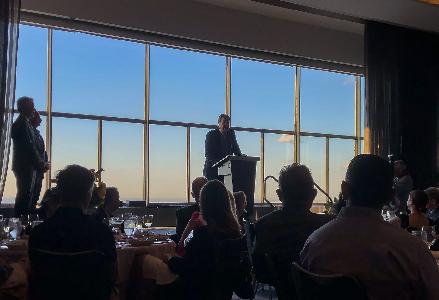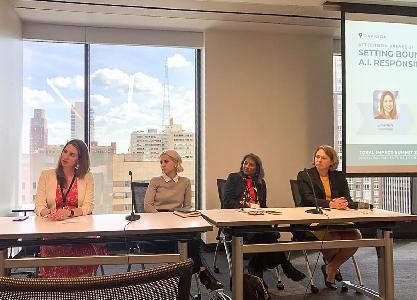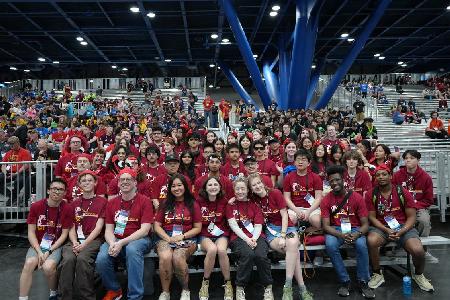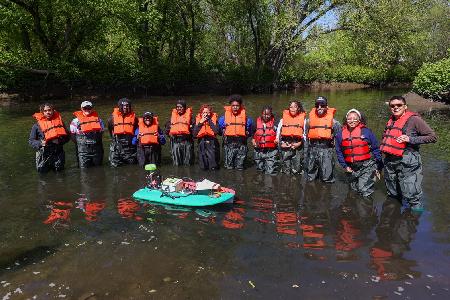Update: On Tuesday, July 28, The Philadelphia Inquirer reported that the School District of Philadelphia would be announcing that it would instead begin the school year totally virtually, at least through the first marking period, which ends Nov. 17.
Back-to-school is bringing more stress than usual, as Philly parents struggle with uncertainty about a school year starting in five weeks amid a pandemic and ongoing questions around digital access.
Here’s where the reopening plan currently stands.
Earlier this month, the School District of Philadelphia (SDP) rolled out a plan for reopening schools for the 2020-2021 school year — called the Advancing Education Safely Plan — which the district said at the time would be used as a roadmap for reopening.
“We have a fundamental responsibility to resume teaching and learning throughout the school year for all students, and we are fully committed to doing so with equity, safety, science and the many needs of our stakeholders guiding our decision making,” Superintendent William Hite said in a letter to the school community in mid-July.
The plan, which assumed there will be active COVID-19 cases in the region at the start of the school year on Sept. 2, was informed by 35,000 responses to a District Re-Opening Survey, 6,000 responses to the Philadelphia Federation of Teachers survey and input from the Philadelphia Department of Health, Children’s Hospital of Philadelphia, Pennsylvania Department of Education and more.
The plan initially stated that the SDP would bring back all K-12 schools with a hybrid model of learning, meaning there would be face-to-face learning for students with complex needs, and all other students would come to school for in-person instruction on an A/B schedule. Students would either physically come to school Mondays and Wednesdays or Tuesdays and Thursdays, with across the board digital learning on Fridays.
When not physically in school, students would be digital learning. Siblings in the same household, no matter the grade, would follow the same schedule, the district said. There would also be an option for fully remote learning in a proposed “digital academy.”
But these outlined plans highlighted some obvious accessibility issues: Taking off work to attend to childcare or to be able to keep a child at home to do fully digital learning would likely only work for families with flexible work schedules, who are from neighborhoods with higher incomes, or who have the resources to create what some are calling “pandemic pods,” aka groups of families that can share digital schooling responsibilities.
The plan also doesn’t provide much protection for teachers, who would be in-person instructing at least four days a week under the selected hybrid model. It’s why dozens of educators took to the streets outside the school district building on North Broad Street this weekend, protesting the proposed plan and the risks it would bring to the thousands of educators who could come across countless potential exposures a day. (Teacher Nick Bernardini told the Inquirer that to him, the district’s plan is feeling like “let’s cross our fingers that there are no deaths.”)
Issues of having enough accessible technology to pull off digital instruction have also been at the forefront of parents’ and educators’ minds.
“To date, all students who have requested a ChromeBook have received one,” the district said in its reopening plan announcement. “We remain committed to ensuring all students who need access to a device will receive one, as well as access to the internet.”
But the ability for all households to have access to a device and the internet is still a question for officials within the City of Philadelphia, which earlier this month formed the Digital Equity Coordinating Committee with an aim to connect community stakeholders and ensure Philadelphians who need access to internet and technology will be able to get it.
While the Mayor’s Office has a great deal of optimism about its planned digital equity work, Chief Education Officer Otis Hackney emphasized the scale of work ahead that’s needed to get one-to-one devices to students: “That’s going to take some time and a lot of data sharing,” he told Technical.ly.
After an eight-hour school board meeting last week, Hite pulled his plan. The superintendent said that his team would “work through the weekend” on revisions — but that a fully virtual school year would not be considered.
As of Monday evening, it was unclear when a new plan will be proposed to the board.
In a guest post for Generocity, education policy pro and current teacher Ami Patel Hopkins argues for these six considerations as the reopening plan is formed:
- Dr. Hite’s administration does not need to rethink a plan alone.
- A 100% online plan should be school-based.
- There is ample time for community feedback before the SDP board vote.
- Stay 100% virtual (with equal access as a priority) until we have more local COVID data and create neighborhood learning opportunities.
- Provide resources to educators to be effective online.
- The City should commission a university/research entity to look at the hard local data of contact tracing.
On July 28, the Inquirer reported that students will in fact go back virtually until at least Nov. 17, with more details to come soon:
In a shift, #PHLed to be all-virtual until at least November, sources say, with officials hopeful of a phased-in reopening. https://t.co/iSrNGGhoKz
— Kristen Graham (@newskag) July 28, 2020
Join the conversation!
Find news, events, jobs and people who share your interests on Technical.ly's open community Slack

Philly daily roundup: Minecraft in a Philly school; PTW kicks off; Tech and art happy hour

Philly daily roundup: Philly's top innovation leaders; City buildings go solar; PTW kicks off on Friday

Philly daily roundup: UPenn's AI master's degree; Advice for EDA Tech Hubs; Last day of ACP


